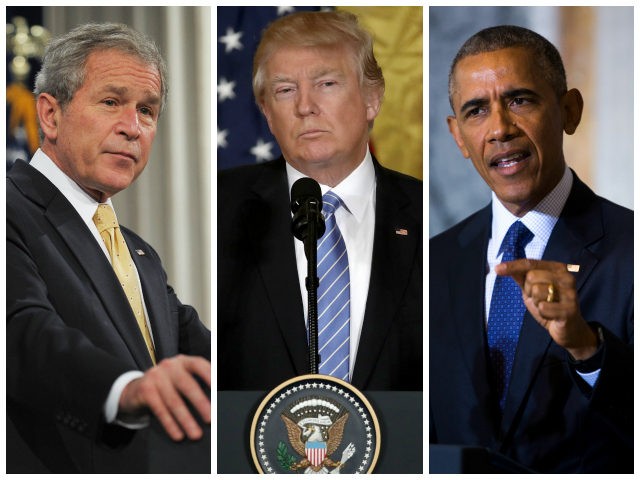Christopher DeMuth of the Hudson Institute argues in the Wall Street Journal this weekend that President Donald Trump has made history by decentralizing power during a crisis, unlike his predecessors, who used crisis to build a bigger government.
DeMuth points out that Trump has empowered state and local governments, while enlisting the help of the private sector and cutting red tape. He has asserted federal prerogatives, but mostly as a way of keeping people in line — not abusing his power.
Contrary to claims that the federal government mismanaged the early stages of the crisis — in testing, for example — DeMuth notes that departments like the FDA did exactly what they were supposed to, until Trump intervened to reduce regulations.
He writes:
Throughout history, national emergencies have led to a more powerful and centralized federal government and to the transfer of federal power from Congress to the executive branch. This time, the federal response rests largely on state and local government and private enterprise, with a wave of deregulation clearing the way. The Trump administration has seized no new powers, and Congress has stayed energetically in the game.
…
In response to the 9/11 attacks, the Bush administration and Congress created two gigantic agencies with extraordinary powers and insulation from congressional control, the Department of Homeland Security and the Office of the Director of National Intelligence … In response to the 2008 crisis, the [Obama] administration arranged corporate mergers and bailouts with only fig leaves of statutory authority. It spent hundreds of billions of dollars without congressional appropriation. These crisis expedients provided the template for the Obama administration’s unilateral responses to mere political frustrations—congressional inaction on its climate change, immigration and other legislative proposals. At the same time, the Dodd-Frank Act of 2010 commissioned an army of new regulatory authorities with unprecedented discretion and autonomy.
…
Mr. Trump has received criticism from all sides for these measured responses. … But mainly he has given pride of place to federalism and private enterprise—lauding the patriotism and proficiency of our fantastic governors and mayors, our incredible business leaders and genius companies, our heroic doctors and nurses and orderlies, and our tremendous truckers. By shouting out many of them by name and documenting their deeds on a daily basis, he has vivified the American way in action (once reluctantly aroused). When asked why he has not issued orders for nationwide home and business lockdowns, he has emphasized that the intensity of the epidemic varies widely and is best met by calibrated state and local judgments—and added pointedly that such steps would conflict with the Constitution.
DeMuth adds that the recent dustup over Trump claiming he had “total” authority to reopen the national economy — after stating, for weeks, that states had primary authority — was typical “jousting” over the federal and state “division of labor.”
He adds that the challenge for reformers will be to seize on the present deregulations and decentralizations — in telemedicine, for example — and use them to spur a wave of innovation that will benefit all Americans when the coronavirus is long past.
Read his full Wall Street Journal article here.
Joel B. Pollak is Senior Editor-at-Large at Breitbart News and the host of Breitbart News Sunday on Sirius XM Patriot on Sunday evenings from 7 p.m. to 10 p.m. ET (4 p.m. to 7 p.m. PT). His new book, RED NOVEMBER, is available for pre-order. He is a winner of the 2018 Robert Novak Journalism Alumni Fellowship. Follow him on Twitter at @joelpollak.

COMMENTS
Please let us know if you're having issues with commenting.